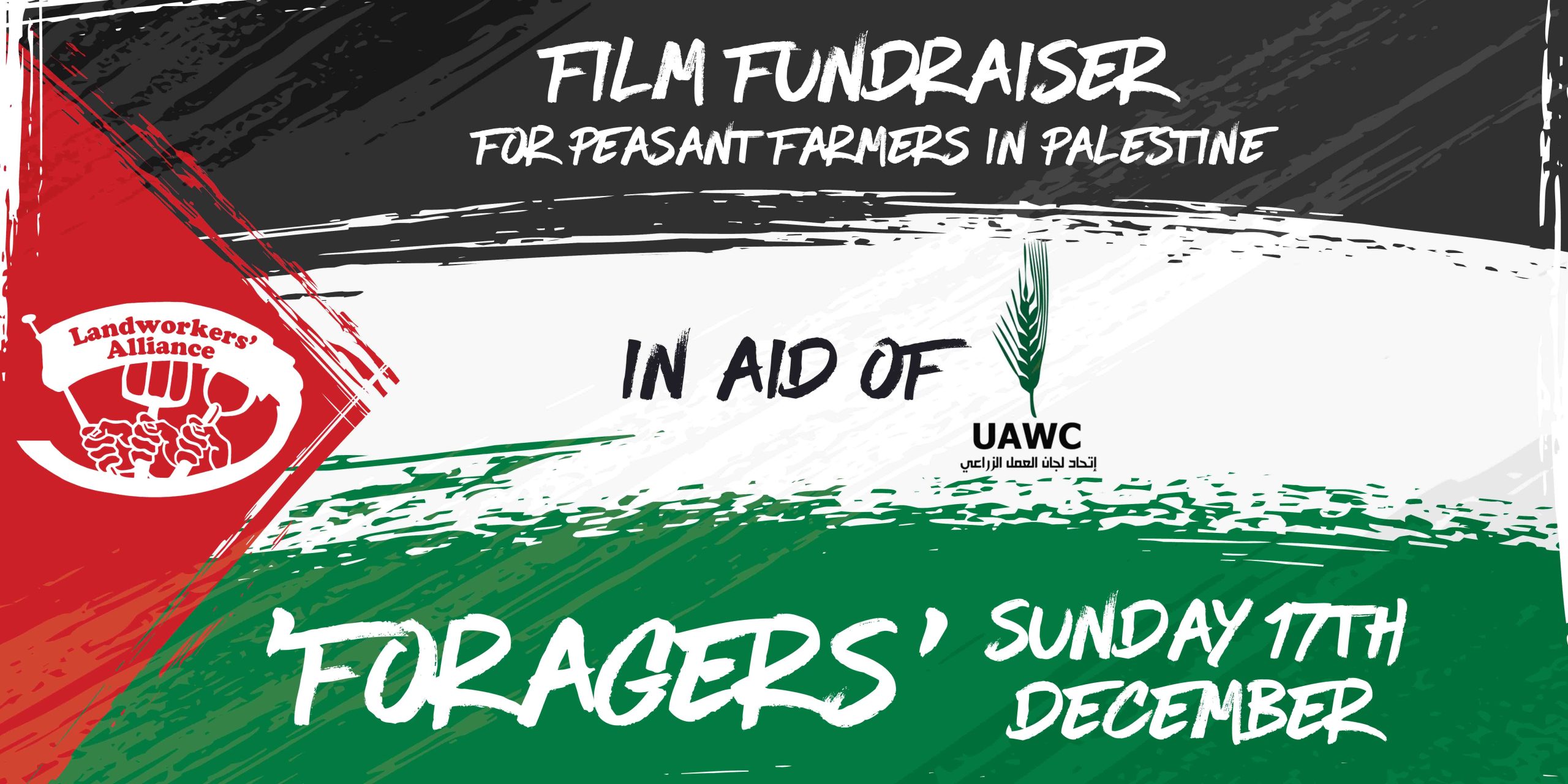Hyphae Mushrooms are a low-tech micro-shroomery in west Wales. They grow oyster mushrooms in buckets indoors and shiitake on locally sourced hardwood logs. They care for a two acre parcel of land where they grow lots of food with the help of a tiny flock of ducks and geese. They are Emma, who is also a contemporary circus teacher and performer, and cee-cee manrique, mushroom cultivator, tender of birds and occasional writer. You can find out more about what they do here.
In this article, they emphasise the importance of cultivating a deep and long-term solidarity with landworkers and farmers in Palestine, and a feeling-with the unique struggles they face under occupation and the current onslaught of Israeli violence and aggression.
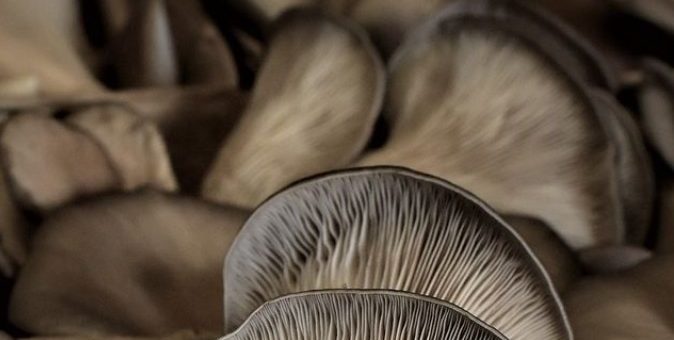
We are Hyphae, a tiny little mushroom farm in windy west Wales. Currently we feel smaller than ever, as we try not to drown in the helplessness of witnessing the ongoing genocide that the state of Israel is perpetrating against the innocent populations of Palestine. It is critical that we as small scale food producers, as land dwellers and workers, never forget that we are intimately linked to our siblings in Palestine.
Our words matter. As food producers we put as much effort into cultivating community as we do seeds, mycelial networks or livestock. We feel good about seeing our food in local restaurants and market gardens, we build relationships with chefs, local people, local business. Whether we serve thousands, tens of thousands or tens of customers, we have a platform from which to speak, people with whom we have a mutual respect. We must continue to use our voices, however little they feel, to speak out.
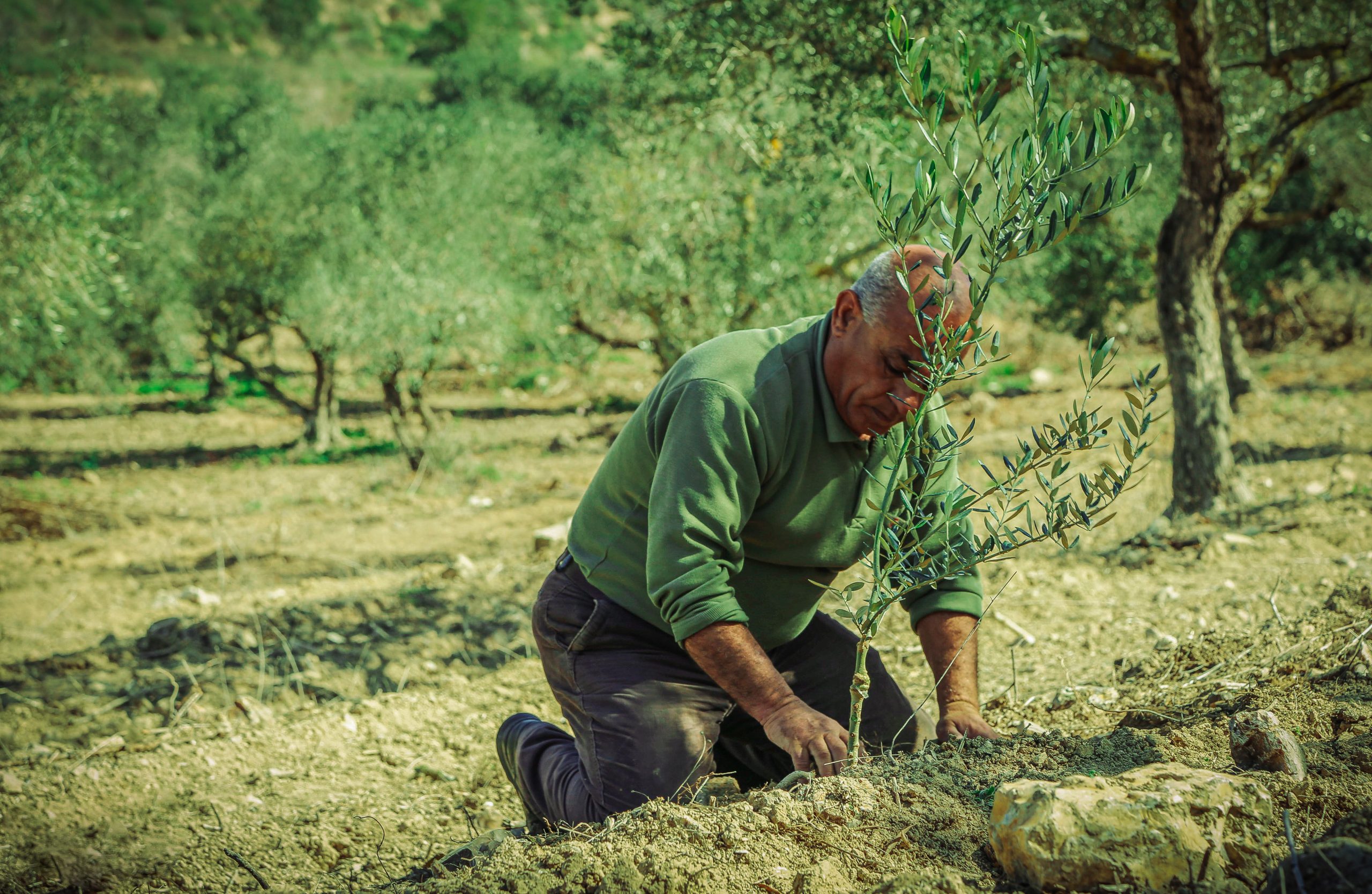
Planting an olive tree in Nablus Mountains, Palestine
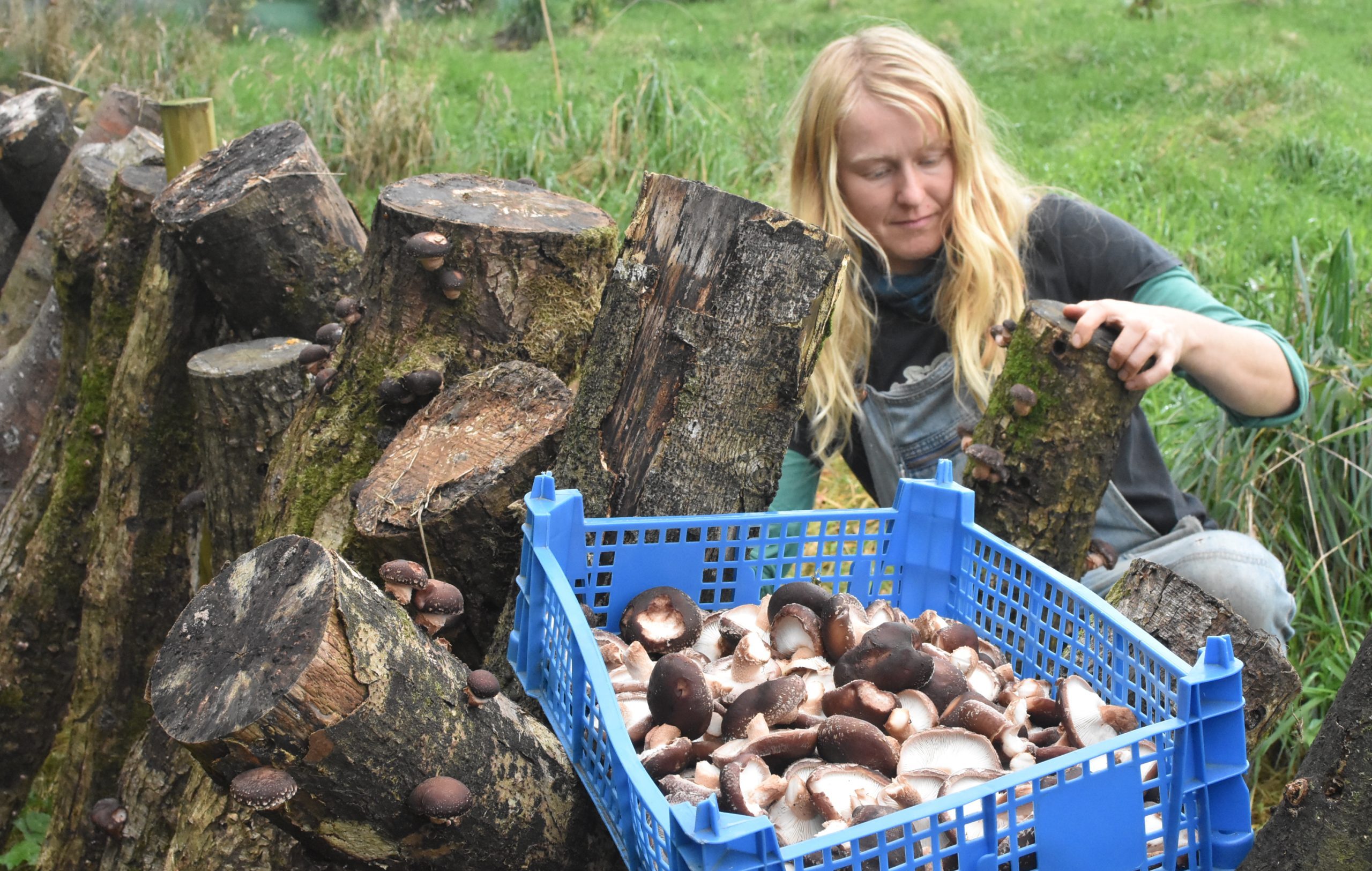
Harvesting shiitake mushrooms, West Wales
Meanwhile, we have been reading about fledgeling mushroom farms in Khan Younis and others across Gaza. We read about Shaima al-Amoudi, who began growing oyster mushrooms in an insulated room on the roof of her Khan Younis apartment. She did so to support her family as her husband was unable to find steady work. An image from the Palestinian Ministry of Agriculture shows school girls attending a class on growing oyster mushrooms. And we read about Alaa al-Masry, who was growing about 150kg a month in her own apartment.
What has become of them? Are they even alive now? Do their farms still exist? We can barely imagine the magnitude of loss they face, as we can barely imagine our homes being flattened, our trees burned and our crops and siblings killed by white phosphorous.
Though it is impossibly painful to witness, we must not look away from the current phase of violence being perpetrated against the innocent populations of Palestine. However, as we try to reckon with this atrocious moment in the genocide, we should also look back and acknowledge that the Israeli occupation has been administering violence in myriad forms for the last 75 years. As mushroom farmers, we look again to our siblings in Palestine.

Amoro farm set up in 2013 in Jericho, the occupied West Bank; the first mushroom farm in Palestine and founded on principles of food sovereignty. The colonial occupiers had a monopoly on the mushrooms sold across Palestine. Quickly, Amoro began selling across the West Bank and before long came close to 50% of the market share. They provided employment for a number of women and challenged the Israeli mushroom monopoly. Palestinians wanted mushrooms produced in Palestine, by Palestinians. The occupiers, threatened, quickly took steps to undermine Amoro, preventing critical deliveries of spawn and compost from leaving port until they were no longer viable. They also levied cruel port fines to profit from this destruction. Amoro were forced to borrow money to pay these fines and so any profits made from mushroom sales were used to repay these debts. Like all farm enterprises, planning is critical in mushroom farming. By withholding their substrate, the occupation made doing so impossible. Amoro ran a crowdfunding campaign in order to raise funds to continue production. We have not been able to find any information on Amoro more recent than their last social media post in 2018. We have reached out to them.
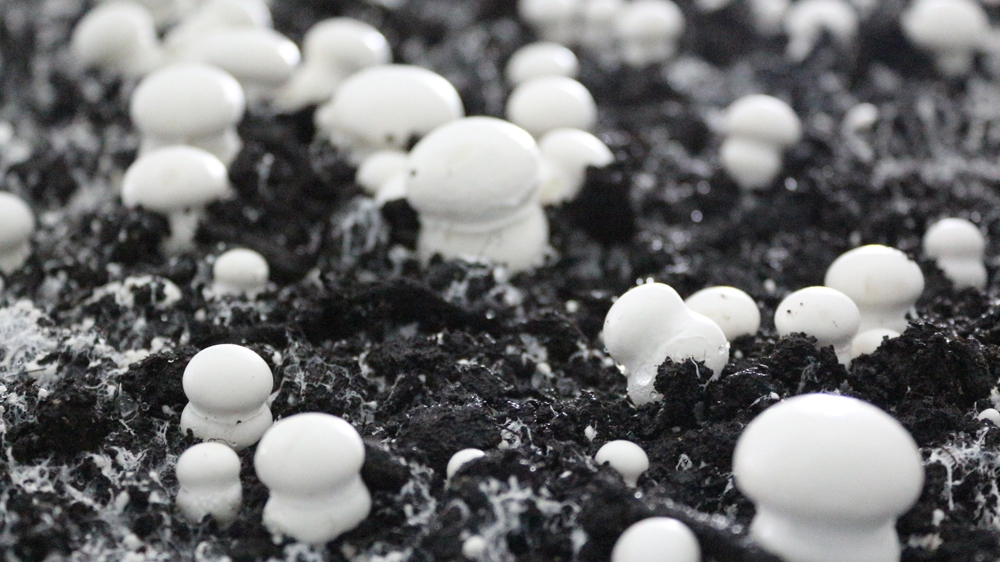
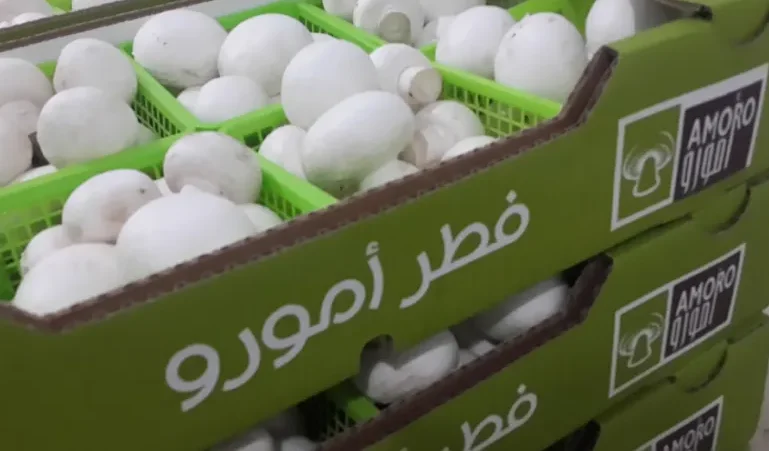
This is one instance of many cruelties inflicted by the occupation on Palestinians in their own land. Settler colonialism is rooted in violence against the land and its people. As we witness the ongoing genocide it is crucial to recognise that this is not happening as a result of the events of October 7th, but is a continuation of a textbook example of settler colonialism, culminating now in this current phase of despicable violence by the occupation.
Every land worker and farmer in the UK will be able to find in Palestine an example analogous to their own experiences; they will be able to recognise the struggles to set up and maintain a farm, to raise livestock or produce a tree crop or run a market garden. For those of us lucky enough to live on the land we will have certain old trees that we love, routes that we cherish, traditions we continue. The lands we live on have taken our own blood, but their ownership can be traced back to the blood spilled by our own colonial heritage.
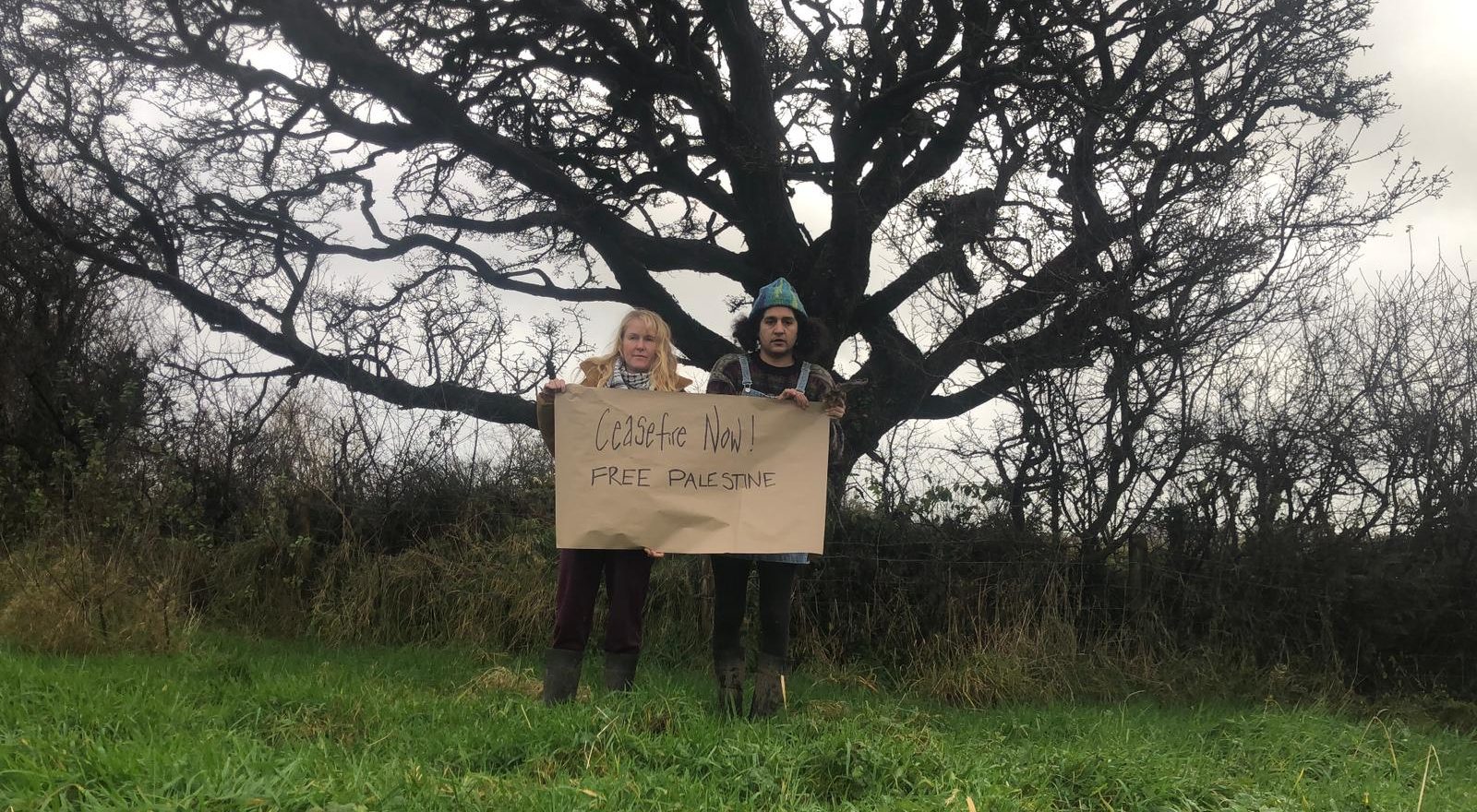
Emma and cee-cee of Hyphae Mushrooms
It is incumbent on us, whose ancestors played such a crucial role in the origins of this violence, to speak out against it. Especially us landworkers. As we care for the land, plan our next season’s plantings or log inoculations, tend to animals and trees and go about our daily work, we must cultivate an unconditional solidarity with Palestine.
We reiterate that:
There is no food sovereignty in a war zone.
There is no justice on occupied land.
Join the Landworkers’ Alliance on December 17th for a special online film screening of the captivating documentary ‘Foragers’, and help us to raise funds for our Palestinian La Via Campesina allies UAWC (Union of Agricultural Committees) who are working tirelessly to provide aid and support to farmers and rural communities in Gaza and West Bank.
About the film:
Foragers moves between documentary and fiction to depict the dramas between the Israeli Nature Protection Authority and Palestinian foragers. With a wry sense of humour, the film captures the inherited love, resilience and knowledge of these traditions, over an eminently political backdrop.
About the screening:
3pm Sunday December 17th: ‘Foragers’ will be available to stream online anytime from 3pm Sunday December 17th (running time: 64 mins).
7.30pm Sunday December 17th: Online presentation, discussion and Q&A session with guest speakers, including Do’a Zayed – UAWC’s National Seed Bank Coordinator – who will share about the important work they are doing to defend peasant seed sovereignty in Palestine.
The film will still be available to watch until December 24th at midnight, and a recording of the presentation and Q&A session will be made available to those who registered.

